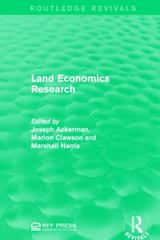Answered step by step
Verified Expert Solution
Question
1 Approved Answer
There is an abundant supply of media stories on global warming, carbon taxes, cap-and-trade, traffic congestion, the declining east-coast fishery, and other externality-related topics. Two
There is an abundant supply of media stories on global warming, carbon taxes, cap-and-trade, traffic congestion, the declining east-coast fishery, and other externality-related topics. Two fundamental issues underlie all of the stories. One is the lack of property rights. The other is the opportunity cost of tackling problems of negative externalities. In this learning activity, it is appropriate to return to, and reinforce, the single-most-important-concept-in-all-of-economics - opportunity cost. Opportunity cost is at the heart of a scenario mentioned at the beginning of Module 5 - we can have a world without pollution if we are willing to drastically reduce our standard of living. The informed question is: how do you find the efficient level of pollution that balances the environmental benefits of lower pollution with the opportunity costs of lower living standards. The importance of trade-offs is dramatically clear in the following story: DDT is an effective, potent pesticide that persists in the environment - it accumulates in animals that eat insects and is now banned in many countries, including Canada. Should DDT be banned everywhere, or is it just like the goal of zero pollution? Without more information, we tend to think, yes, it should be banned everywhere. But all choices have opportunity costs. DDT is by far the most effective tool in fighting malaria because it kills the mosquitoes that spread the disease. In the 1950s and 1960s, widespread use of DDT all but eliminated malaria in most countries, and by 1970 had saved an estimated 500 million lives. Since then, DDT has been banned in many countries, and malaria outbreaks have increased significantly. In Mozambique, malaria infection rates are 20 to 40 times higher than in neighbouring Swaziland, which never stopped using DDT. The World Health Organization estimates that roughly 500 million people currently suffer from malaria, most in sub-Saharan Africa. About 2 million die per year. So, should DDT be banned everywhere
Step by Step Solution
There are 3 Steps involved in it
Step: 1

Get Instant Access to Expert-Tailored Solutions
See step-by-step solutions with expert insights and AI powered tools for academic success
Step: 2

Step: 3

Ace Your Homework with AI
Get the answers you need in no time with our AI-driven, step-by-step assistance
Get Started


